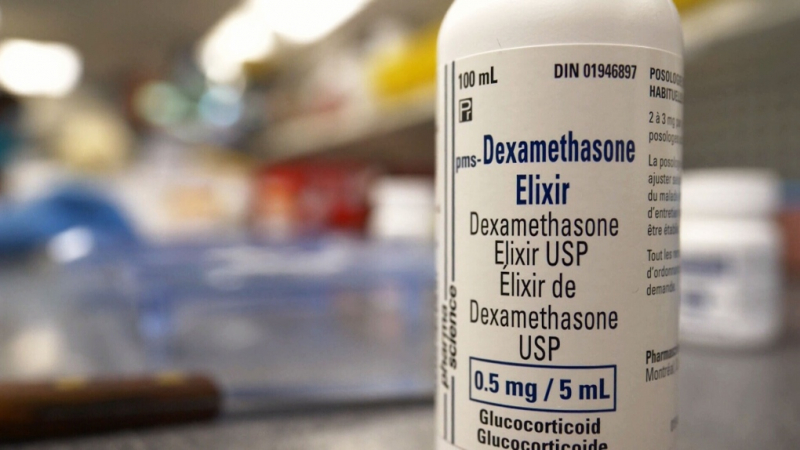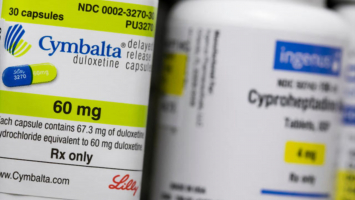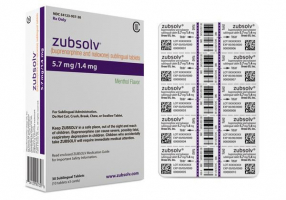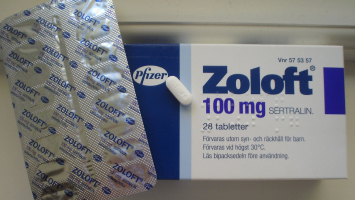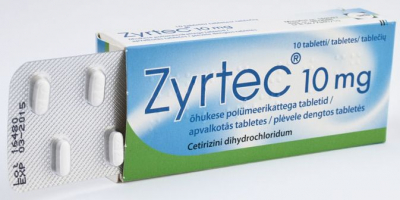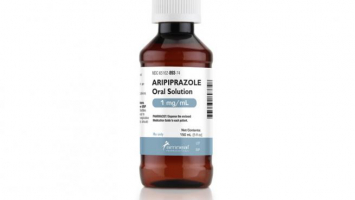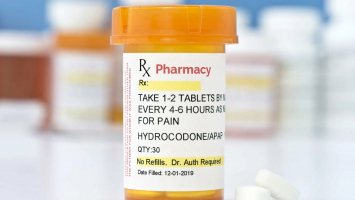Top 8 Things to Know About Dexamethasone
Dexamethasone is a glucocorticoid drug used to treat various skin conditions, severe allergies, asthma, chronic obstructive pulmonary disease, croup, brain ... read more...edema, post-operative eye discomfort, superior vena cava syndrome, and tuberculosis when combined with antibiotics. It may be combined with a mineralocorticoid drug like fludrocortisone to treat adrenocortical insufficiency. It can be utilized to help the baby's outcomes during premature labor. Below are some things to know about Dexamethasone so don't skip!
-
- Inflammatory disorders can sometimes be treated with dexamethasone. Dexamethasone soothes an overactive immune system and aids in the reduction of inflammation.
- Dexamethasone mimics the action of cortisol, a hormone secreted by the adrenal glands, which are situated above the kidneys and regulate stress and metabolism.
- Dexamethasone is a member of the corticosteroid drug subclass. It is a glucocorticoid in particular.
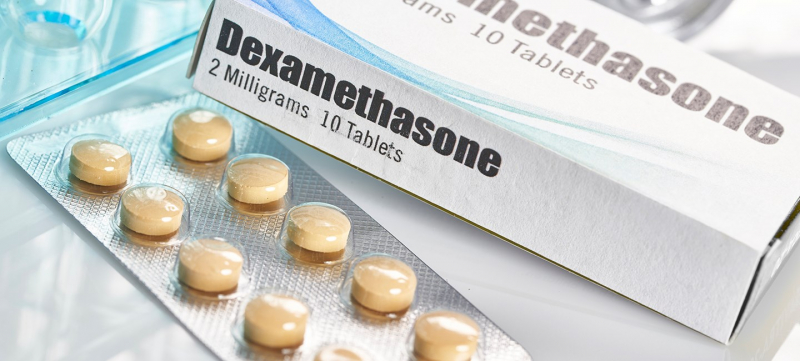
Photo: Moffitt Cancer Center 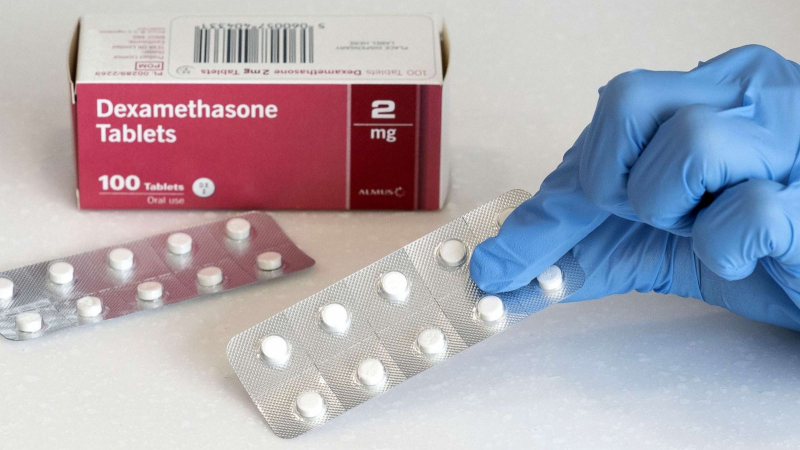
Photo: ABC News -
Benefits of Dexamethasone would be the following thing to know about Dexamethasone. The National Institutes of Health (NIH) in the US and the National Health Service in the UK both advise dexamethasone for COVID-19 patients who require mechanical breathing or additional oxygen (without ventilation). For individuals with severe COVID-19, which is defined as having a SpO2 of less than 94% on room air, as well as those who require additional oxygen, mechanical ventilation, or extracorporeal membrane oxygenation, the Infectious Diseases Society of America (IDSA) guideline panel recommends the use of glucocorticoids (ECMO). The IDSA advises against using glucocorticoids in COVID-19 patients who do not have hypoxemia and do not require additional oxygen.
- May be used to reduce inflammation brought on by a variety of illnesses, including rheumatoid arthritis, multiple sclerosis, ulcerative colitis, endocrine disorders, blood disorders, nerve disorders, eye diseases, kidney diseases, respiratory illnesses, and palliative care.
- Dexamethasone is often only given for short-term use, however in some circumstances, it may be administered for longer times.
- Prednisolone and dexamethasone have comparable actions, but dexamethasone has stronger anti-inflammatory, hormonal, and metabolic effects.
- Dexamethasone is less likely than hydrocortisone to result in fluid retention when administered at the same dosage.
- There is dexamethasone in generic form.
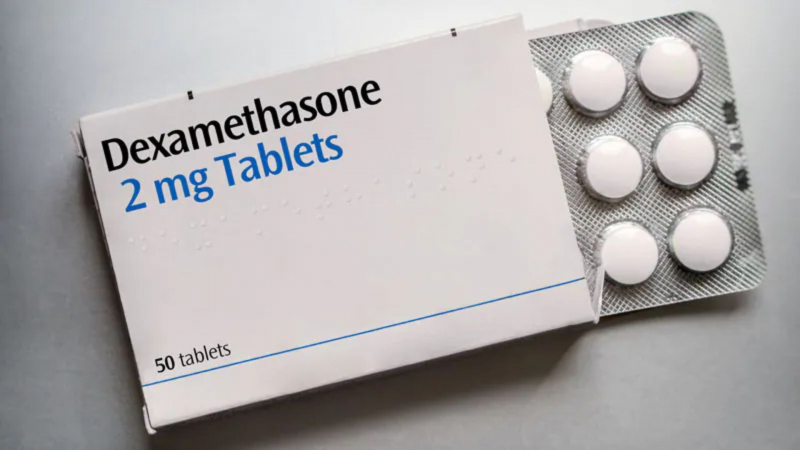
Photo: Medscape 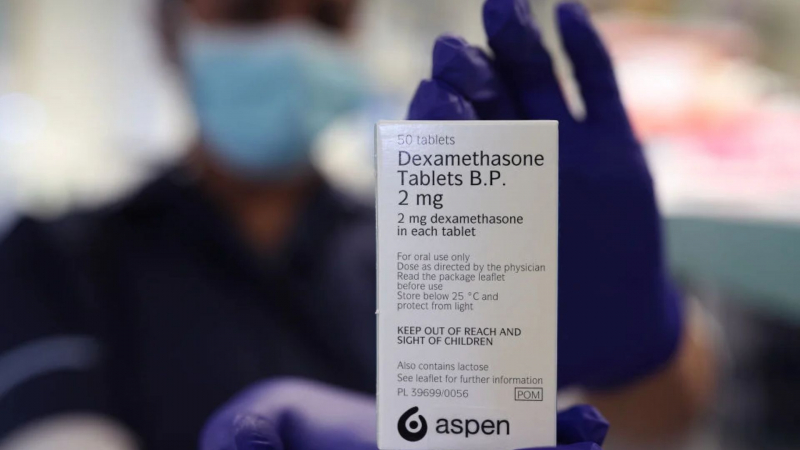
Photo: TIME -
You are more likely to have the following side effects if you are between the ages of 18 and 60, do not take any other medications, or have any other medical conditions:
- The most frequent adverse effects are mood changes like agitation, anxiety, and irritability, impaired vision, a change in heart rate, swelling of the limbs (edema or salt and water retention), increased appetite and weight gain, and trouble concentrating.
- In addition, it's possible to experience indigestion, facial hair development (particularly in women), high blood pressure, sluggish skin healing, skin thinning, osteoporosis (brittle bones), low potassium levels, and issues controlling blood sugar. Rarely have reports of severe allergic responses been made.
- Should not be utilized in patients with viral or systemic fungal diseases. Dexamethasone's anti-inflammatory properties might conceal infection-related symptoms, which may also increase the risk of infection.
- Some medical disorders, such as heart failure, diabetes, osteoporosis, tuberculosis, cushingoid syndrome, and peptic ulcers, may make a person ineligible.
- Overdosage may result in fluid retention, potassium loss, salt retention, and weight gain.
- Should not discontinue using dexamethasone abruptly if it has been used for a long time. To give the adrenal glands time to resume their regular production patterns, gradually reduce the dosage over a period of weeks or months. A dexamethasone withdrawal that is too quick might result in symptoms like nausea, vomiting, exhaustion, bone and muscle pain, and weight loss.
- To help prevent stomach ulcers while taking dexamethasone, alcohol use should be restricted or avoided.
- After dexamethasone therapy has ended, it is necessary to wait several months before administering "live vaccinations."
- Aspirin, digoxin, NSAIDs, hormonal contraceptives, other medicines metabolized by CYP3A4, and warfarin are only a few of the medications that may interact with each other. Low blood potassium levels brought on by dexamethasone may impair the effectiveness of several cardiac medicines.
- Use only if the advantages outweigh the hazards when pregnant. When corticosteroids are administered to pregnant mice, rats, and rabbits, animal studies have shown that there is an increased incidence of cleft palate in the offspring. There are no sufficient and reliable research on expectant mothers. When used during pregnancy, corticosteroids should only be taken if the benefits outweigh the risks to the developing baby. Mothers who took high doses of corticosteroids during pregnancy should be closely monitored for any signs of hypoadrenalism in their newborns.

Photo: The Blackberry Center 
Photo: Everyday Health -
- Take dexamethasone exactly as prescribed; do not alter the dosage unless your doctor advises you to. Dexamethasone dosage must vary depending on the condition being treated and the patient's reaction.
- To reduce the risk of stomach ulcers while taking dexamethasone, limit or avoid alcohol consumption.
- If you're taking Intensol, an oral dexamethasone solution, you need to mix it with a liquid or semi-solid food, like pudding or applesauce. Do not save any of the stored product for later use; instead, immediately consume the entire amount.
- If you experience a fever or any other signs of infection while taking dexamethasone, get medical help as soon as you can. Talk to your doctor if you have any worrying side effects or changes in your mood.
- Put the information that you are taking dexamethasone on a medical alert bracelet.
- Try to keep away from those who are contagious with a virus like measles or chickenpox. If you believe you may have unintentionally been exposed, get medical help right once.
- Dexamethasone should not be abruptly stopped when used long-term. To allow the adrenal glands to resume their regular secretion patterns, your doctor will give you instructions on how to gradually lower the dosage of dexamethasone over a period of weeks or months. A dexamethasone withdrawal that is too quick might result in symptoms like nausea, vomiting, exhaustion, bone and muscle pain, and weight loss.
- After dexamethasone therapy has ended, wait a few months before administering "live vaccinations."
- Make sure to let your doctor, dentist, or other medical personnel know that you are taking dexamethasone.
If you take dexamethasone once a day and forget to take it, do so right away. Skip the missed dose and take the next one at the regular time if you don't realize you missed it until the next day. Unless you have less than two hours until your next dose if you take it twice or three times a day, take the missing dose as soon as you remember. If this occurs, skip the missed dose and proceed with the subsequent dose as usual. Never take two doses to make up for missed ones. That's all about the fourth thing to know about Dexamethasone.

Photo: PBS 
Photo: BetterMyMeds -
When used with Dexamethasone, drugs that interact with it may either lessen its impact, shorten its duration of action, amplify side effects, or have no effect at all. Even while it is not always necessary to cease taking one of the drugs, sometimes there is an interaction between two drugs. Consult your doctor to learn how to handle drug interactions.
Dexamethasone may raise blood glucose levels in diabetics, necessitating dosage modifications for diabetes medications (such as insulin, glyburide, etc.). Use in combination with fluoroquinolone medications (such ciprofloxacin and levofloxacin) may increase the risk of tendon rupture. Alcohol can also raise the risk of dexamethasone's gastrointestinal adverse effects, as well as possible liver and renal damage. The inflammatory response to skin testing may be suppressed by dexamethasone.
Typical drugs with which Dexamethasone may interact are:
- antacids
- antibiotics, such as clarithromycin, erythromycin, rifabutin, rifampin, or troleandomycin
- anticholinesterases, such as neostigmine, or pyridostigmine
- anticoagulants (blood thinners) such as apixaban, dabigatran, fondaparinux, heparin, or warfarin
- antidepressants, such as desipramine, fluoxetine, sertraline, or St. John's Wort
- antifungal medications, such as itraconazole, ketoconazole, or voriconazole
- antinausea medications, such as aprepitant
- aspirin
- clozapine
- cobicistat
- CYP3A4 inducers, such as phenobarbital, phenytoin, rifampicin, St. John's Wort, or glucocorticoids
- CYP3A4 inhibitors, such as clarithromycin, erythromycin, diltiazem, itraconazole, ketoconazole, ritonavir, verapamil, goldenseal, or grapefruit
- echinacea
- epilepsy medications, such as carbamazepine, oxcarbazepine, phenobarbital, phenytoin, or primidone
- estrogen-containing hormonal contraceptives (includes birth control pills, patches, rings, implants, and injections)
- heart medications, such as amiodarone, diltiazem, or verapamil
- HIV medications (eg, atazanavir, delavirdine, efavirenz, indinavir, etravirine, ritonavir, nevirapine, saquinavir, or tipranavir)
- immunosuppressants, such a cyclosporine
- nonsteroidal anti-inflammatories (NSAIDs), such as celecoxib, diclofenac, etodolac, ibuprofen, ketorolac, meloxicam, nabumetone, or naproxen
- other corticosteroids, such as prednisone
- potassium-depleting agents, such as amphotericin B Injection and diuretics (eg, furosemide, hydrochlorothiazide)
- some asthma medications, such as zafirlukast
- vaccines (may inhibit the immune response)
- others, such as aminoglutethimide, bupropion, cholestyramine, cyclosporine, digoxin, isoniazid, quetiapine, or thalidomide.

Photo: Vinmec 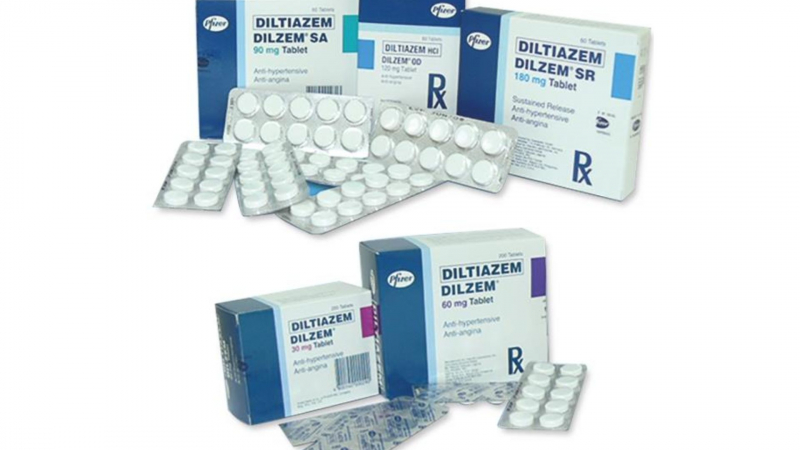
Photo: MIMS -
Typically, dexamethasone is not advised during pregnancy. In the first 12 weeks of pregnancy, difficulties have occasionally been related to steroids. The growth of your unborn child when you are pregnant may also be impacted by taking them frequently or in high doses. If your doctor decides the advantages exceed the risks, they may recommend dexamethasone for you. You will undergo more frequent examinations to monitor your baby's development if dexamethasone is required while you are pregnant.
Dexamethasone is often safe to use while nursing. Dexamethasone can, however, enter breast milk. Obtain advice regarding nursing while taking this medication from your doctor or health visitor. For this reason, refrain from breastfeeding or expressing milk for at least 3 hours after taking your medication. Your baby might require monitoring if you're taking a large dose. This is to ensure that the medication does not have any negative side effects on them. Speak to your health visitor or doctor if you notice your baby is not feeding as well as normal, seems particularly tired, or if you have any other worries about your baby.

Photo: Premier Health 
Photo: NBC News -
Several months of dexamethasone use may raise your risk of experiencing some additional negative effects. Long-term use of this medication might cause decreased growth in children and teenagers as well as weaker bones (osteoporosis), vision issues, and other difficulties. Dexamethasone may impair blood sugar management if you have diabetes. While you are using this medication and again after you stop, your doctor might need to change the way you are managing your diabetes. To assist you stay as healthy as possible, you can do a few things.
- Make sure you obtain adequate calcium in your diet and engage in regular exercise to help build your bones. Dairy products including milk, cheese, and leafy greens are high in calcium. Your doctor might schedule a periodic bone scan for you to monitor your bones.
- You might need to check your blood sugar more frequently if you have diabetes. You can get more guidance on this from your doctor.
- Visit an optometrist once a year to lessen your risk of developing vision issues. They will examine your eyes for cataracts and glaucoma-related excessive eye pressure.
- Your child's height and weight need to be closely watched if they take dexamethasone for an extended period of time. To ensure that the steroid is not hindering their growth, this is done. If you're concerned, speak to their doctor. They can describe the advantages and disadvantages of giving your child dexamethasone.

Photo: CIDRAP 
Photo: Penn Medicine










